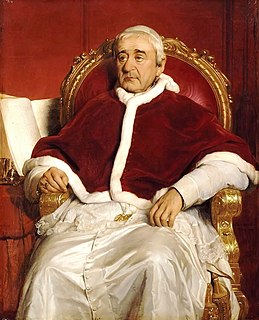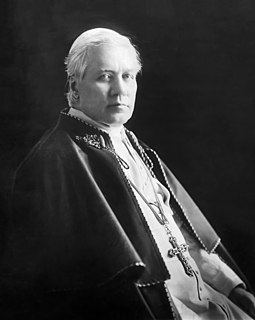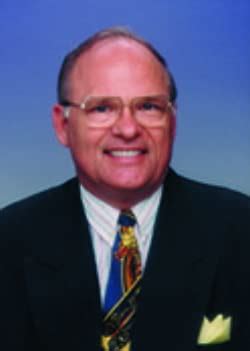Top 72 Apostolic Quotes & Sayings - Page 2
Explore popular Apostolic quotes.
Last updated on December 4, 2024.
The New Apostolic Reformation is an extraordinary work of the Holy Spirit that is changing the shape of Christianity globally. It is truly a new day! The Church is changing. New names! New methods! New worship expressions! The Lord is establishing the foundations of the Church for the new millennium. This foundation is built upon apostles and prophets. Apostles execute and establish God's plan on the earth.
Apostolic and missionary fruitfulness is not principally due to programmes and pastoral methods that are cleverly drawn up and "efficient", but is the result of the community's constant prayer (cf. "Evangelii Nuntiandi," 75). Moreover, for the mission to be effective, communities must be united, that is, they must be "of one heart and soul" (cf. Acts 4:32), and they must be ready to witness to the love and joy that the Holy Spirit instils in the hearts of the faithful (cf. Acts 4:32).
The fields are still ripe for harvesting (cf. Jn 4:35); God continues to give the growth (cf. 1 Cor 3:6). We can and must believe, with the late Pope John Paul II, that God is preparing a new springtime for Christianity (cf. Redemptoris Missio, 86). What is needed above all, at this time in the history of the Church in America, is a renewal of that apostolic zeal which inspires her shepherds actively to seek out the lost, to bind up those who have been wounded, and to bring strength to those who are languishing (cf. Ez 34:16).
We are here speaking in open disapproval of that false system of philosophy, not so long ago introduced, by which, because of an extended and unbridled desire of novelty, truth is not sought where it truly resides, and, with a disregard for the holy and apostolic traditions, other vain, futile, uncertain doctrines, not approved by the Church are accepted as true, on which very vain men mistakenly think that truth itself is supported and sustained.
Our Apostolic Mandate requires from Us that We watch over the purity of the Faith and the integrity of Catholic discipline. It requires from Us that We protect the faithful from evil and error; especially so when evil and error are presented in dynamic language which, concealing vague notions and ambiguous expressions with emotional and high-sounding words, is likely to set ablaze the hearts of men in pursuit of ideals which, whilst attractive, are nonetheless nefarious.
Contemporary Christianity, diverse and complex as we find it, actually may show more unanimity than the Christian churches of the first and second centuries. For nearly all Christians since that time, Catholics, Protestants, or Orthodox, have shared three basic premises. First, they accept the canon of the New Testament; second, they confess the apostolic creed; and third, they affirm specific forms of church institution. But every one of these - the canon of Scripture, the creed, and the institutional structure - emerged in its present form only toward the end of the second century.
We are on the cusp of the emergence of a company of hidden men and women who with all faith and patience have been enduring great struggles and dealings, being processed by the Lord and filling up what is lacking in the afflictions of Christ. These are not those who seek a reputation for themselves, their passion is His glory and giving Him the church He has longed for. May God grant us all the heart of apostolic fathering and mothering that can release His power in the earth. Zion is once again in travail to bring forth her children.
One thing must be emphatically stated. The New Testament books did not become authoritative for the Church because they were formally included in a canonical list; on the contrary, the Church included them in her canon because she already regarded them as divinely inspired, recognizing their innate worth and generally apostolic authority, direct or indirect.
My own idea, for what it is worth, is that all sadness which is not either arising from the repentance of a concrete sin and hastening towards concrete amendment or restitution, or else arising from pity and hastening to active assistance, is simply bad; and I think we all sin by needlessly disobeying the apostolic injunction to 'rejoice' as much as by anything else. Humility, after the first shock, is a cheerful virtue.
Is it permitted for Catholics to be present at, or to take part in, conventions, gatherings, meetings, or societies of non-Catholics which aim to associate together under a single agreement everyone who, in any way, lays claim to the name of Christian? In the negative! ... It is clear, therefore, why this Apostolic See has never allowed its subjects to take part in the assemblies of non-Catholics. There is one way in which the unity of Christians may be fostered, and that is by furthering the return to the one true Church of Christ for those who are separated from Her.
Latin America can no longer tolerate being a haven for United States liberals who cannot make their point at home, an outlet for apostles too "apostolic" to find their vocation as competent professionals within their own community. The hardware salesman threatens to dump second-rate imitations of parishes, schools and catechisms -- out-moded even in the United States -- all around the continent. The traveling escapist threatens further to confuse a foreign world with his superficial protests, which are not viable even at home.
The whole world will be affected when the apostles and prophets are fully restored. Their supernatural prophetic and apostolic words will signal the rise and fall of many nations and people. They will be instrumental in determining goat and sheep nations so that when Jesus Christ comes He can put the sheep nations on His right and the goat nations on His left. It will not be long until Christians realize the tremendous ways the restoration of prophets and apostles will affect them and the corporate Church.









